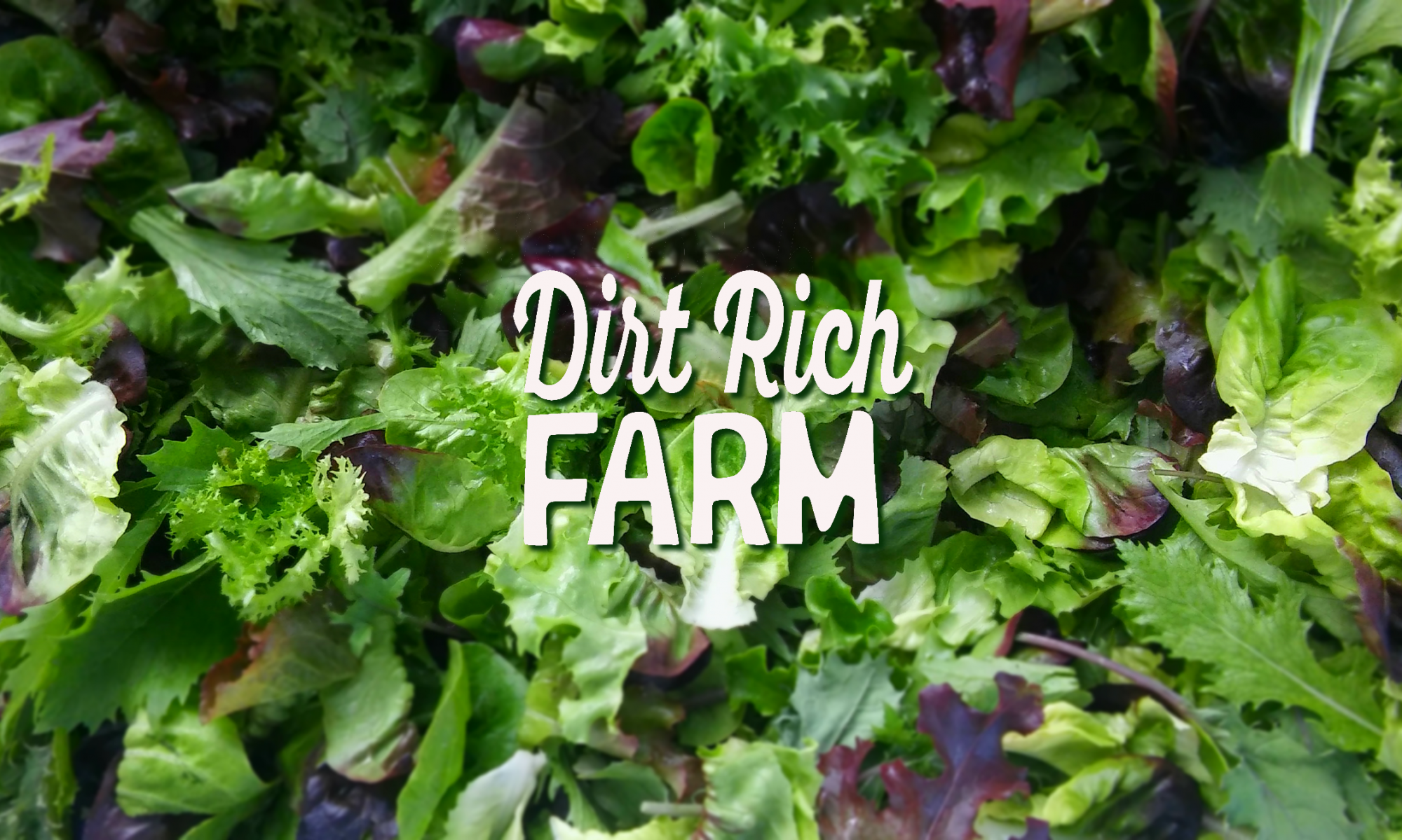What are Dirt Rich Farm’s Growing Practices?
Is Dirt Rich Farm certified organic?
Local small scale vegetable growers are learning more about farming now than ever. In addition to being cost prohibitive for producers on our scale, Organic certification standards are slow to adapt to new understandings of soil ecology. Because we choose not to certify, we emphasize the importance of the trust that is built between farmers and the community. To us, a conversation is more valuable than a label. In order to remain transparent and accountable, we publish our growing practices here:
Vegetable Varieties
We select crop varieties to promote diversity in the diet. We also choose vegetable varieties by their ability to thrive in our climate and their nutritional content. This does not mean we have to sacrifice flavor – At Dirt Rich Farm, we believe carrots should be sweet but NOT sugary.
Seeds
Dirt Rich Farm grows a variety of open-pollinated, hybrid and heirloom seeds. However, we do not use or support the use of GMO crops or animals. We source organic and bio-regional seeds when practical (by availability). All pelleted seeds are OMRI listed.
Fertility
On-site fertility comes from annual cover-crop rotations and from crop residue compost. Our primary imported source of fertility comes from composted dairy manure which we receive from a neighboring Certified Organic dairy farm. We also use the following OMRI listed amendments in limited degrees to tailor to crop specific nutritional needs:
- fish bone meal
- feather meal
- calcium carbonate
- epsom salt
Irrigation
Dirt Rich Farm uses a surface drip irrigation system to deliver water to the fields. Drip irrigation is the most efficient means of water delivery available and reduces the water needs of our farm.
Weed control
We never use chemical herbicides at Dirt Rich Farm. Instead we use a two pronged cultural approach to weeds:
Prevention
- Limit tilling and soil disturbance
- Do not allow weeds to propagate by seed
- Keep beds in continuous production with vegetable or cover crops
Mitigation
- Mulch (both organic and plastic) when appropriate
- Pre-emergent flame weeding
- Diligent use of hand operated cultivation tools
Disease and Pest Prevention
We believe that inviting diversity to the farm helps to balance pest pressure. We have designed areas in and around our farm as habitat for predators and pollinators. Crops that are particularly susceptible to insects and diseases are rotated inter-seasonally to prevent the cycles from continuing. Physical barriers are also an important part of our growing practices and pest prevention and we often use crop covers and netting to protect crops.
Farming is evolving. Small growers must constantly weigh the appropriateness of techniques in order to save time and money while increasing the positive impacts on the natural elements of the farm.

